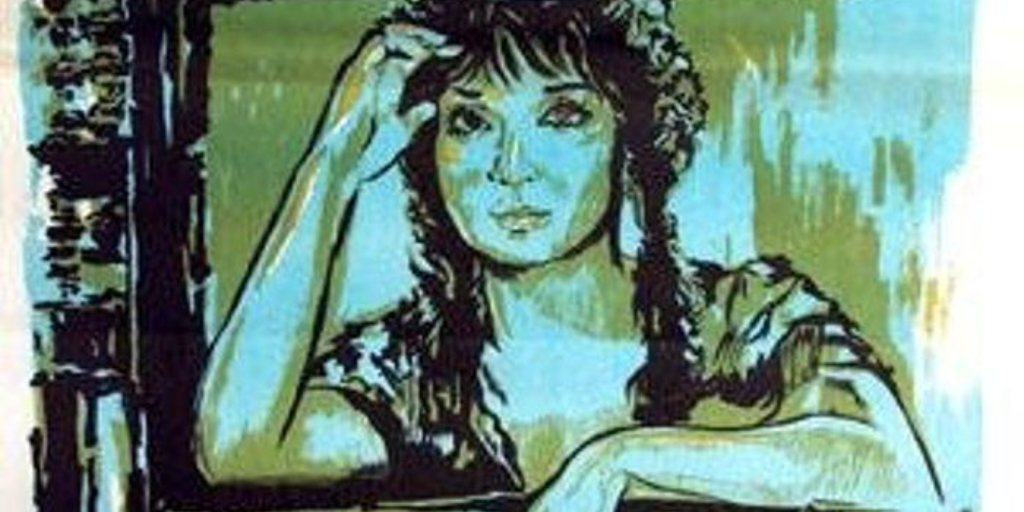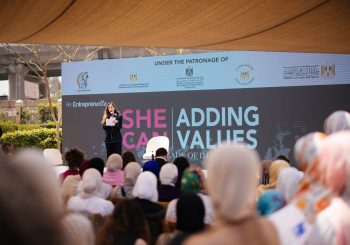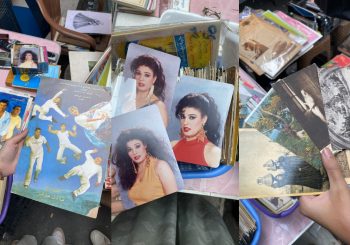“Her connections with the past were now cut forever, so why should she retain her name?” – Naguib Mahfouz
This passage touches upon the idea of abandoning one’s own identity and heritage, and adopting a new one, treating names as trivial aspects of an identity that can be easily disregarded. Many cultures, particularly in developing nations like India, Pakistan, Egypt and Lebanon have struggled to preserve their identity for next generations, while facing the domineering pressures and weight of Western imperialism. Globalization has undoubtedly led to the growth of many societies and enriched minds about the world around them. However, a globalized nation, especially a developing one influenced by the West, is indubitably predisposed to the dilution of its cultural inheritance and values.
Naguib Mahfouz, a world-renowned Egyptian novelist and Nobel Prize winner, projected the effects of Western imperialism on Egypt in his novel ‘Midaq Alley’ (1947). Mahfouz is widely known for his exposure of the culture of shame that permeates many circles of Egyptian society, and does not shy away from bold and prickly social critique. In fact, in 1994, Islamist militants made an attempt on Mahfouz’s life, believing him an infidel who writes blasphemous novels.
One of Mahfouz’s most critically-acclaimed works, Midaq Alley tells the story of an isolated, dull, small alley in Cairo during World War II, exhibiting the lives of different characters and their reactions to the on-going war. The novel focuses on ambitious young woman, Hamida, who is dissatisfied with the limited and bland life of the alley, and seeks to escape for a more luxurious and prosperous future. Hamida succeeds in doing so, but ends up in the hands of a procurer (a man who employs sex workers) who obliterates her personal identity and transforms her into a desirable, lavish woman to entertain the British soldiers in Cairo.
Precarious Cultural Identity in the Face of the British
In his novel, Mahfouz provides a realistic portrayal of modern social issues in mid-20th century Egypt, during an age of transformation from traditionionalism to modernism. Reading the novel, I was astounded to learn of all the lives impacted by the presence of the British and relate it to modern-day society. In my opinion, reading about the journeys and challenges of characters that Mahfouz so eloquently illustrated, conveyed how the presence of the British in Egypt led to the rise of materialism and the loss of the Egyptian identity in the face of Western culture.
Defined as a form of self-identification, cultural identity is a sense of belonging to a group or a community sharing the same linguistic background or similar characteristics of values and traditions. With the loss of cultural identity, comes the diminishing of social cohesion and the development of a communication barrier.
Mahfouz’s immaculate use of characterization is a crucial literary element and component to the depiction of Egypt’s socio-cultural issues and stoicism during World War II. Through the writer’s characterization of the novel’s protagonist, Hamida, and his description of the monotonous and dreary life of the alley, he highlights why Egyptians yearned for a materialistic life once they encountered the British.
From my standpoint, the writer portrays Hamida as a symbol of Egypt being both a victim and instigator of exploitation. This is illustrated when Hamida is taken in by a procurer, Ibrahim Farag, as mere commodity to entertain British soldiers and when she agrees to marry Abbas, a poor man from her alley, due to his promises of a life beyond the alley.
Surprisingly, though, it was revealed in an interview with ‘The Paris Review’ in 1999 that the writer had not consciously intended on making her character symbolic of anything. However, he did endorse the interpretation, arguing that the condition Egypt was in may have impacted the way he viewed repressed women in Middle Eastern society.
Mahfouz depicts the Alley’s severe isolation to emphasize its cultivated culture of stifling and misogynistic traditions and beliefs, which impel Hamida to fight its pervasive confinement. In his unconscious embodiment of Egypt through Hamida, Egypt appears as a victim of repression who was later deceived and corrupted by the ideological influences of Western culture.
The novel’s exploration of the loss of cultural identity is not specific to the World War II era, but still relates to Egypt’s modern contemporary society. The effects of Western imperialism have led to the cultural clash between generations in Egyptian society, and the lack of assimilation with the previous generations.
One of the ways in which Western influences prevailed over Egyptian society is the eradication of traditional values by promoting more individualistic and materialistic thinking. Mahfouz delineated those effects in his novel by showing how, with the presence of the British in Egypt, Hamida began fantasizing about modern lifestyles and rejecting the stereotypical social expectations of women, like marriage and sensitivity.
Her sexuality becomes her main source for economic success and social status, through which she seduces the alley’s social “elite” in the hopes of landing better prospects. Hamida takes advantage of her source of economic power once she sells herself to the British. Mahfouz stresses on the notion of economic trade, as Hamida’s understanding of her own duplicity ensures her access to a lavish life beyond the alley.
“She’s a whore by instinct. She’s going to be a really priceless pearl,” writes Mahfouz.
I think that Midaq Alley mirrors Britain and Egypt’s dynamic relationship through Hamida and Farag’s characterization and affiliation. The writer alludes to Britain’s sly strategies of exploiting the Egyptian population, as Farag lures her into a materialistic culture and leaves her in a ravaged condition. Mahfouz’s employment of characterization is so impeccably affluent that it makes you wonder about the characters’ emblematic significance to the modern-day world.
Loss of the Present-Day Egyptian Identity
Today, the influence of the West is setting in more directly – on a personal-cultural level, creating a barrier between those who are still in touch with their traditions and values, and those who have embraced the Western lifestyle.
I think that a major factor of that actuality is Egyptians’ preference of the English language over their own mother-tongue – Arabic. It has created a sense of social and cultural division between the older generations still in touch with their heritage and the rising one that has been subjected to globalization and foreign languages.
While there were established Western schools in Egypt like: Deutsche Evangelische Oberschule (DEO) founded in 1873 and Cairo American College (CAC) founded in 1945, they were not as widely prominent as they are today. Thus, this cultural division had reached its peak through the emergence of Western schools and institutions in Egypt towards the end of the 20th century.
“It’s an ancient name that will amuse Englishmen and Americans,” writes Mahfouz.
The superiority of the English language is definitely seen in the novel when Hamida is exploited by Ibrahim to entertain the British soldiers. Ibrahim renames her “Titi” and teaches her exotic dances and words to create a more appealing identity for the Englishmen. Though she gains material satisfaction by escaping the alley to work for a procurer, Hamida loses touch with her Egyptian inheritance.
Hamida’s ornamentation and embellishment stress the fact that she is seen merely as an object for sexual gratification, exploited for monetary value. The loss of her cultural identity is epitomized when she relinquishes her name and emerges as a commodified Egyptian temptress for Western men’s desires.
Through Hamida’s loss of identity, Midaq Alley displays how Egypt gradually loses touch with its morality, values, and tradition in an era where societal norms are shifting towards modernity due to the impact of Western colonialism.
Today’s society is not merely impacted by British colonialism, but its loss of cultural identity is also driven by Western media and the projection of their own cultures on screen.
More recently, Egyptians have been introduced to more Western elements which have been incorporated in daily life, such as holidays like Valentine’s Day (February 14) and Western Christmas (December 25) – although there are Egyptian variants to both: November 4 and January 7, respectively, these celebrations thus allude far more to consumerism than to the communities who observe or celebrate the occasions.
The Western influence over contemporary Egyptian society is also discernible in today’s architecture and urban development, which is built on hyper modern architectural style. This impact is especially noticeable in the modern-contemporary construction and design of New Cairo. Hassan Fathy, a renowned and influential Egyptian architect, rejected international modern architectural styles and endorsed traditional, vernacular architecture. Fathy believed that, by embracing traditional Egyptian styles and designs, we would be preserving our cultural authenticity.
Despite the end of imperialism and historical power imbalances, the West still continually leaves its mark on emerging nations. Through the use of Western media, negative portrayals of varying cultures encourage masses to question their own identity or to internalize negative ideas about it. This inaccurate and unflattering representation of various cultures attests to a sense of superiority amongst Westerners, thus, establishing the presence of status anxiety in Egyptian society.
Egyptians’ negative image of their culture and mannerisms has reinforced class disparities, driving the wealthy to adopt new western values and cultural habits, as a way of distinguishing themselves from the stereotypical image of Egyptian culture. In fact, Egyptians have a phrase defining this very issue known as: oqdet el khawaga (foreigner complex), which is the impression that anything Western or foreign is better than Egyptian.
Reading and interpreting this novel has opened my eyes to just how far back Egypt’s complicated feelings of defensiveness and infatuation with the West go, and how the West’s influence over Egyptian society has since then changed in medium.
I think that there is a difference regarding the West’s impact over Egyptians in the mid-20th century and today, where in the past, their culture was still being introduced amidst the Egyptian population and was seen as something new that they could adopt in hopes of landing better prospects. However, today Western culture has already been infused into Egyptian society over several decades and has made its way into educational institutions and media, where Egypt’s youth are instilled with Western values and mentality, declaring it a normality of present-day society.







Comment (1)
[…] “Midaq alley: Does Mahfouz’s Exploration of Identity Loss Still Hold True Today? Egyptian Streets […]